Say What?
Perhaps you are new to a particular activity or outdoor recreation in general? On the other hand, you may fancy yourself an outdoor expert. Regardless of your skill and experience, there has likely been a time when a friend has casually thrown out a term that was completely foreign to you. Did you ask what he/she meant? Or did you just smile, nod and say nothing, not wanting to seem ignorant?
Language is central to the ethos of any culture, and outdoor culture is no different. While each outdoor endeavor has its own set of slang terms, there are plenty of words, acronyms and phrases that cross over into the colloquialisms of numerous activities.
Some of the outdoorsy acronyms are the worst because you don’t know if they are words or initials. For example, NOLS stands for the National Outdoor Leadership School, the gold standard in outdoor education and an international organization based in Lander, Wyoming. And GORP, originally an acronym for good ol’ raisins and peanuts, is a tasty trail snack that’s chock full of energy; aka trail mix.
Then there are the customary “slang” words. While they each have their own unique implication, bomber, sick, gnarly, epic and stoke are all positive terms that are most often used in place of common words such as great, extreme, fun, dangerous and thrilling.
Outdoor clothing and equipment comes with a confusing vocabulary as well. UPF stands for ultraviolet protection factor, which is just like SPF, only it’s in your outdoor clothing. DWR references durable water repellent finish. This lovely coating is why water beads up and runs right off your favorite breathable outdoor pants.
While the groover sounds like a fancy dance move, it is actually a portable box used as an outdoor loo, named for the grooves it will leave on your backside. Although a halo of flowers seems like a very outdoorsy adornment, a daisy chain is a rock climbing tool and excellent accessory for hanging gear.
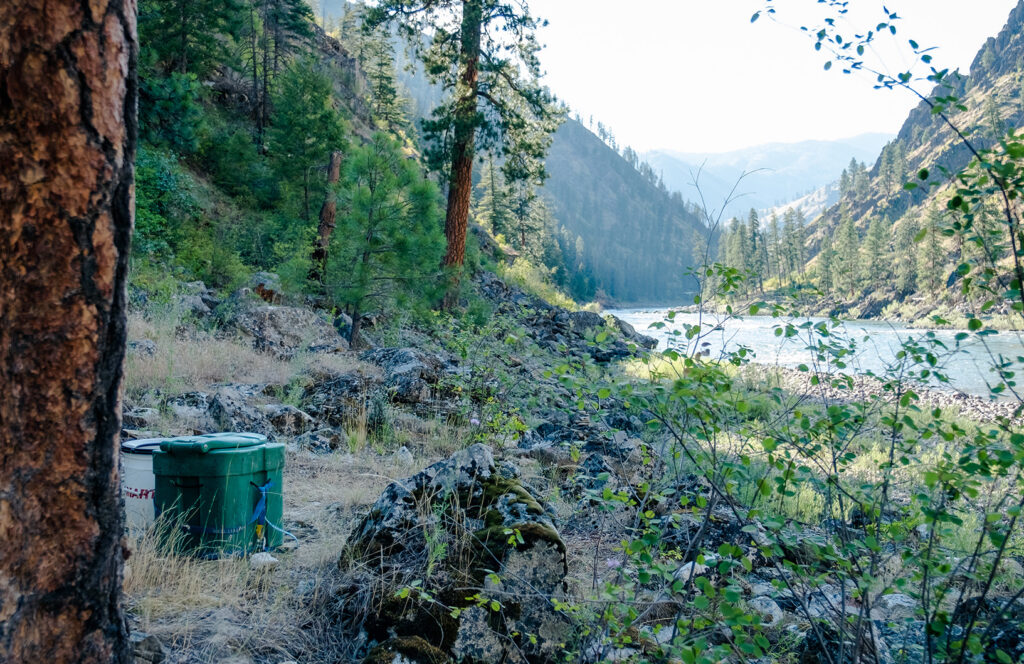
Expressions referencing elements of the outdoors in general are some of my favorite. A bluebird day is a sunny, brilliant, cloudless blue sky after a winter night of snowfall. Krumholtz denotes the gnarled trees often found near tree line. A blaze is not a forest fire or indicating marijuana use, but a carved out “i” on a tree indicating a trail. Likewise, a cairn is a generally small pile of rocks stacked and placed as a trail marker, not a fancy way to spell Karen. And, a widowmaker isn’t an angry ex-spouse, but a broken tree branch that is propped in the live branches and poised to fall out with wind or snow.
This collection embodies a minute fraction of the outdoor lingo most commonly used. The next time you see me out and about in the community I’d love to hear some of your favorites.
If your adventure companion ever looks at you and says, “You just sandbagged me! The cold smoke and face shots were epic, but I’ve got a serious case of screaming barfies and I think I’m gonna bonk.” Just look at them and say, “What?!”

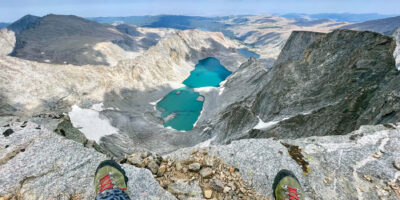
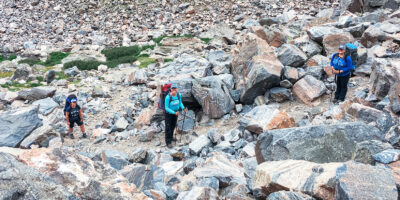
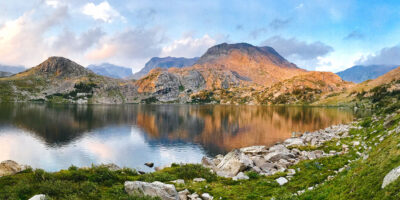

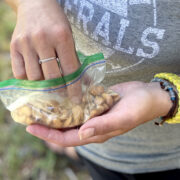
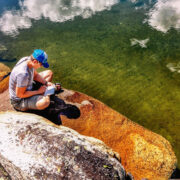
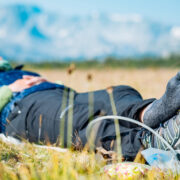
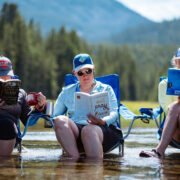

Comments